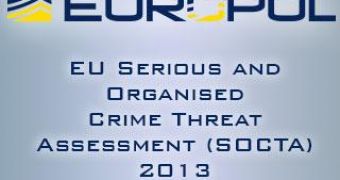According to a new study published today by Europol, the EU Serious and Organised Crime Threat Assessment (SOCTA), currently, there are around 3,600 organized crime groups in the European Union.
While international drug trafficking is the most prevalent, new criminal phenomena has also been observed, such as Internet crimes and ones linked to the current economic crisis.
“A new breed of organised crime groups is emerging in Europe, capable of operating in multiple countries and criminal sectors,” says Rob Wainwright, director of Europol.
“These groups are no longer defined by their nationality or specialisation in one area of crime but by an ability to operate on an international basis, with a business-like focus on maximising profit and minimising risk. They are the epitome of our new globalised society.”
The 2013 SOCTA report recommends EU member states and other actors to focus their efforts on several threats. Some of them haven’t been regarded as priority areas until recently.
The list of priorities highlighted by Europol includes human being trafficking, facilitation of illegal immigration, cybercrime, money laundering, counterfeit goods that might impact public health and safety, and synthetic drug production.
When it comes to the Internet, Europol warns that it has become a “major driver of criminal activity” which allows criminal organizations to carry out various activities in a short period of time and on a larger scale.
“The fight against organised crime has big implications for the EU’s ability to secure an effective economic recovery,” Wainwright added.
“Through a recent expansion of the ‘black market’ and notable developments in fraudulent activity criminal groups are denying governments, businesses, and citizens billions of Euros each year in lost tax receipts, profits, and private income. Stronger action is needed in the EU to close down these criminal activities and protect our economic base.”

 14 DAY TRIAL //
14 DAY TRIAL //